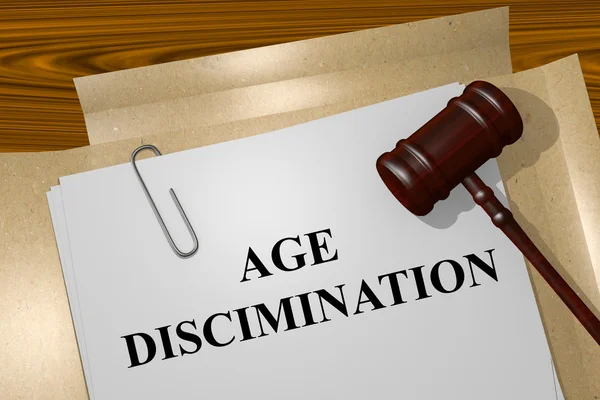Every day, more than three women are killed by an abusive partner. Sadly, this impacts every age group, and you could be one of them. You are not alone; some people can help you change your situation.
Your situation is unique, and our law firm will help evaluate your case. If you are about to leave someone or your partner leaves you, there are resources everywhere that can help you.
Read on to learn more about how to avoid relationship problems and abuse.
Contents
Signs of Abusive Relationships
Relationship problems and abusive relationships can be challenging to spot and tackle. Knowing the signs of an abusive relationship situation can help you identify potential problems and take steps to address them.
Physical or Sexual Violence
Physical and sexual violence in relationships is a serious issue. It includes force, physical assault, and coercing behaviors. Common physical abuse includes slapping, hitting, kicking, burning, and using objects as weapons.
Sexual violence includes being forced to engage in sexual activity without consent, and it is an act of power and control.
Financial Abuse
Financial abuse is a form of relationship problem and abuse that can create long-term harm and instability in a person’s life and financial security.
It often occurs in situations of power imbalance, such as between a partner and spouse or parent and child. The abuser has control over the other person’s finances.
This form of abuse includes controlling the use of money, setting unfair ground rules, stealing the other person’s money, being overly critical of spending habits, denying access to bank accounts, preventing the other person from having a job, preventing access to financial aid, or pressuring the other person to sign documents without knowing what they are signing.
Financial abuse is toxic in relationships and can have far-reaching consequences. If you are in a situation of financial abuse, it’s essential to seek help from a trusted source.
Controlling Behavior
Controlling behavior is commonly seen in relationships where one partner seeks to have an excessive amount of control over the other partner.
In many cases, this behavior can quickly escalate from minor annoyances to dangerous, threatening, or manipulative attempts to seek dominance over the other person.
It is important to remember that controlling behavior should not be tolerated in any relationship, as it can lead to severe psychological and physical consequences.
Emotional Abuse
Relationship problems caused by emotional abuse are often difficult to recognize since the abuser’s actions may appear subtle and challenging to detect.
For many, emotional abuse can manifest as a sense of fear, guilt, or low self-esteem brought on by the victim’s relationship. The abuser may also attempt to isolate the victim, leading to further feelings of loneliness and exclusion.
Extreme Jealousy
Extreme jealousy is the root cause of many relationship problems and abuse. As the jealousy continues, increasing surveillance may be maintained on the other person’s activities.
Even the most subtle communication from outside parties may be seen as a threat, and intrusive behavior could result. It is essential to take appropriate measures to protect oneself and seek help before it is too late.
Verbal Insults
Verbal Insults are malicious comments about a person or group to make them feel belittled, small, or inferior. Such verbal insults can humiliate and manipulate someone in an abusive or controlling manner.
These are generally characterized as hurtful. It can damage a relationship in many ways, from creating a rift in the couple’s intimacy and trust to making the relationship an unhealthy and even dangerous environment.
Overcoming the Cycle of Abuse
To recover and move forward, those involved must openly and honestly discuss and accept the impact of the abuse. It is essential to recognize and challenge the underlying causes of the behavior, such as anger management problems and mental health issues.
The next step is to create a safe environment for everyone involved. This includes maintaining boundaries and finding or creating a support network.
By taking the necessary steps to end the cycle of abuse, it can be possible to build healthier, more fulfilling relationships.
Strategies for Building Healthy Relationships
Building healthy relationships is essential for reducing the impact of abuse. Proper communication and mutual respect are key components of successful relationships.
Giving each other enough room to breathe is essential while respecting the other person’s boundaries and choices. Acknowledge each other’s feelings to create understanding and work through issues together.
Spend quality time together to strengthen the connection. Listen to one another and compromise when possible. Show commitment without expectations of what should be given in return.
Acknowledge mistakes, take responsibility for them, and let go of grudges. Show respect and acceptance of one another’s thoughts, opinions, and feelings.
Seek help if needed, and remember: healthy relationships are built on trust, respect, and open communication.
Knowing When to Seek Help
When it comes to issues in a relationship, knowing when to seek help is critical. It is to protect your safety and emotional well-being. Knowing when to walk away or insinuate a healthy boundary is difficult sometimes.
If your partner’s behavior is making you
- Feel Anxious
- Afraid
- Unsafe
- Manipulations
- Possessiveness
- Criticism
- Threats
- Intimidation
- Control
Then it is time to reach out for help. Understanding the resources available is key to preventing relationship problems and abuse from escalating. Identifying abuse is best done with support and assistance from friends and loved ones.
Professional help can also be an invaluable resource. So if you are facing relationship problems or suspect abuse, please ‘check this out‘ and take the necessary steps to get help before it’s too late.
A Guide to Knowing Relationship Problems and Abuse
When it comes to relationships, knowledge and power are key. We hope this guide has empowered you to identify, assess, and address any potential relationship problems or abuse in your current or future.
If you think you are in an unhealthy or abusive relationship, remember that help and support are available. Contact the National Domestic Violence Hotline for guidance today.
Did you find this article helpful? Check out the rest of our blogs!




